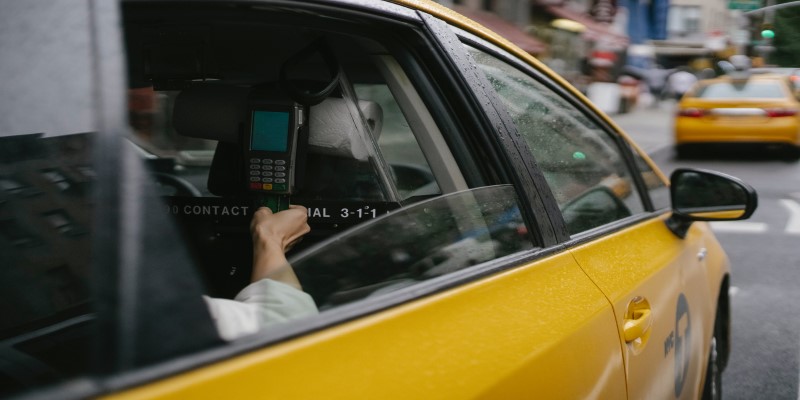Business Personal Property (BPP) insurance enables businesses to receive financial assistance for repairing or replacing assets, including inventory, furniture, and equipment. Typically, broader business property insurance policies encompass this particular category of coverage. Property insurance is critical for most organizations, but particularly for small businesses. Nevertheless, enterprises that uphold an inventory operate specialized machinery, or have made substantial investments in their operational facilities must guarantee that BPP insurance is included in their property insurance. Ensuring sufficient coverage should be a priority to safeguard these invaluable assets.
According to reports from 2021, forty percent of small businesses experienced a liability or property loss within the preceding five years; this highlights the criticality of carrying adequate insurance coverage. A growing number of organizations in the United States, especially those that possess valuable tangible resources, have come to acknowledge the critical nature of BPP insurance. For example, between 2019 and 2022, businesses with substantial investments in machinery and inventory increased their BPP coverage limits by an average of 25%, according to one study.
How To Get BBP Insurance

Verify that business personal property coverage is included in the policy when contemplating the purchase of business property insurance to protect your organization. Despite not possessing a physical structure, this insurance remains essential as it protects the following three types of property:
- Property owned by the organization.
- Physical constructions and edifices.
- Items your organization is momentarily in possession of but rightfully belong to third parties.
Things your company temporarily owns but belongs to others. Standalone and combined BOPs cover commercial real estate. Business owner policies combine property and liability insurance. This coverage protects your company from legal action as well as physical assets. If your business harms a customer or damages their property, general liability insurance in a business owner's policy can protect you from lawsuits.
More than half of small businesses had legal disputes in 2019, demonstrating the importance of a BOP. Personal injury claims are the most common cause of these disputes. An SBA survey found that small firms may spend 4% of their income on legal expenses like liability insurance.
If your company needs BPP insurance, get a BOP. It handles your property needs and protects you from liability claims, a common business issue. Precautions are required, with over 100 million US lawsuits filed annually. BOPs protect your company legally and physically. BOPs can give business owners the financial stability and peace of mind to focus on growth and success, especially in a changing market and legal landscape.
What The BBP Insurance Covers
Businesses' personal property insurance protects their physical assets. In case of damage, it repairs or replaces inventory, office furniture, machinery, and equipment. In particular, it protects lease-required improvements to leased spaces or property. Exclusively, certain types of damage are covered by this insurance. Incidents such as lightning strikes, explosions, fires, storms (including hail or wind), smoke damage, car or aircraft accidents, vandalism, riots, sprinkler system failures, sinkhole collapses, and volcanic eruptions are all encompassed within the scope of standard protection. Even so, there are limitations to this protection against deterioration brought about by fungi, dry rot, wet rot, and bacteria.
It's not comprehensive. A few BPP policies cover damage from falling objects, snow or ice, water, or collapsed structures. Note that the standard BPP insurance term does not cover all disasters. Earthquakes and floods are often uninsured. Your policy must be carefully examined to understand what's covered. The significance of this insurance has become progressively more apparent in recent years. According to a report by the Insurance Information Institute, 30% of small businesses in the United States have BPP insurance, with claims peaking during natural disaster seasons. For example, hail and wind damage claims increased substantially in 2019, comprising around 40% of the total claims filed with the BPP insurance term. In addition, it is worth noting that approximately 25% of enterprises impacted by significant catastrophes cease operations altogether, a figure elevated by the National Federation of Independent Businesses to emphasize the critical importance of possessing comprehensive insurance coverage.
General Cost Of BBP Insurance

Commercial property insurance costs small businesses $67 per month or $800 annually. This is the average small business price per Insureon. The cost of this insurance depends on several factors:
- Industry and Risks: Your company's nature and risks affect its insurance premiums. Consulting firms may pay lower premiums than construction firms due to their work and risks.
- When buying insurance, consider the property's value. Higher-valued properties usually have higher insurance premiums.
- The location of your company affects its insurance premiums. Places with frequent natural disasters or high crime may have higher premiums.
- The coverage is deductible, and your limit will affect your premium. Higher coverage limits and lower deductibles raise costs.
- Companies with a history of multiple or expensive insurance claims may pay higher premiums due to risk perception.
How Much Coverage Does One Need?
It is essential to set the policy limit for your business property insurance at a minimum of 80 to 90 percent of the actual value of your land. As stated in the "coinsurance provision," a customary segment found in most insurance policies, this is specified. This information is typically published in the policy declarations, which are the first few pages of your policy. You risk not having enough insurance if you are below the required percentage. Take your $30,000 stock. Your Business Personal Property (BPP) insurance policy can pay out $15,000 in total loss. Your $15,000 extra cost is yours.
Your BPP insurance term company's payment may be proportional to your adherence to the coinsurance provision in situations involving partial losses. To illustrate, if your policy mandates a minimum coverage of 80% of the value of your property, a $30,000 inventory should cover you for a minimum of $24,000. Claim payouts may be restricted to 62.5% of the loss by the insurer if coverage is limited to $15,000. The abovementioned proportion, denoting 62.5% of the mandatory $24,000, signifies your compliance with the coinsurance stipulation. According to Marshall & Swift/Boeckh, 75% of American businesses are 40% or more underinsured. A good policy limit is crucial, as this statistic shows. Another Business Property Insurance Information Institute report noted that 30% of 2019 natural disaster losses were uninsured. The disparity shows the importance of adequate insurance coverage.




